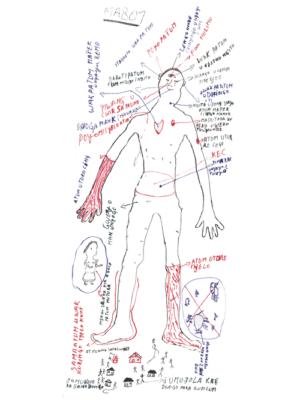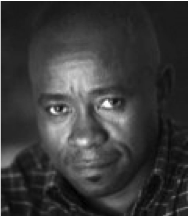
By Felicien Maisha
As a nurse at HEAL Africa hospital in Goma, I experienced the human consequences of war on a daily basis. Vulnerable populations, including women and children, have been disproportionately affected by the fighting in eastern Congo. I saw children as young as seven years old pass through the hospital, often suffering from physical injuries and mental illness as a result of their experiences as child soldiers.
I joined Eastern Congo Initiative last year to address and better understand the underlying factors that make children vulnerable to recruitment by armed groups. A series of polls conducted by ECI across the DRC revealed that 40% of the Congolese population personally knows a boy or girl formerly associated with an armed group in their local community. This remains a key challenge to the development of my country.
I’ve also met countless former child soldiers who, with little formal education and no qualifications, have struggled to find a source of stable income or to find a job after having escaped from rebel groups. This often leads to ‘recidivism’ – when former child soldiers are forced to return to armed groups and a life of combatant, after failing to reintegrate into their local community.
My colleagues and I at Eastern Congo Initiative, in partnership with Harvard Humanitarian Initiative and six Congolese community-based organizations*, recently completed a two year research project to examine the experiences of children formerly associated with armed groups attempting to reintegrate, socially and economically, across eastern Congo. I travelled across the region, to many unstable and inaccessible areas, to work with communities to learn about the challenges former child soldiers face.
We found that effective psychosocial support, for example, is seldom available for these vulnerable children. Tombola, a girl who had previously spent eight months with a rebel group in Ituri, said “I was pretty much living on the battlefield. I heard bullets fly past very frequently. That really affected my health, both mentally and physically. I tried to find medical support, but they weren’t able to diagnose the problems I had.”
On the basis of our findings, we made eight key recommendations to the DRC Government, United Nations, international donors and local organizations to promote the sustainable socioeconomic reintegration of former child soldiers. I recently traveled from Goma to Washington, D.C., where I met with a number of key stakeholders and advocated for the urgent implementation of these recommendations. I’d never left Africa before, and relished this opportunity to share my experiences in eastern Congo with international policymakers.
Having returned to Congo, I’m proud to continue to work with fantastic Congolese organizations such as ‘Let Africa Live’ to provide small business training and equipment to children formerly associated with armed groups. Last year, ECI and Let Africa Live trained former child soldiers and other vulnerable young adults to set up and manage five small businesses across South Kivu province. In the space of just nine months, these businesses generated over $30,000 in revenue. This is a successful and replicable model that provided a stable income and professional experience to these young adults, allowing them to regain the trust and the confidence of their families and communities.
To learn more about our research you can read our full report, ‘We Came Back with Empty Hands,’ or head to www.wecameback.org.
 Felicien Maisha is Eastern Congo Initiative’s Monitoring, Evaluation & Research Officer. Felicien grew up in South Kivu province, but moved to Goma to work for HEAL Africa before joining ECI in July 2013.
Felicien Maisha is Eastern Congo Initiative’s Monitoring, Evaluation & Research Officer. Felicien grew up in South Kivu province, but moved to Goma to work for HEAL Africa before joining ECI in July 2013.
*ECI and HHI partnered with the following Congolese community-based organizations in this research initiative: ACIAR (Mahagi); AJEDI-Ka (Uvira); Caritas (Bunia); ETN (Goma); GRAADE (Walikale); PREV-HIA (Kalehe)
